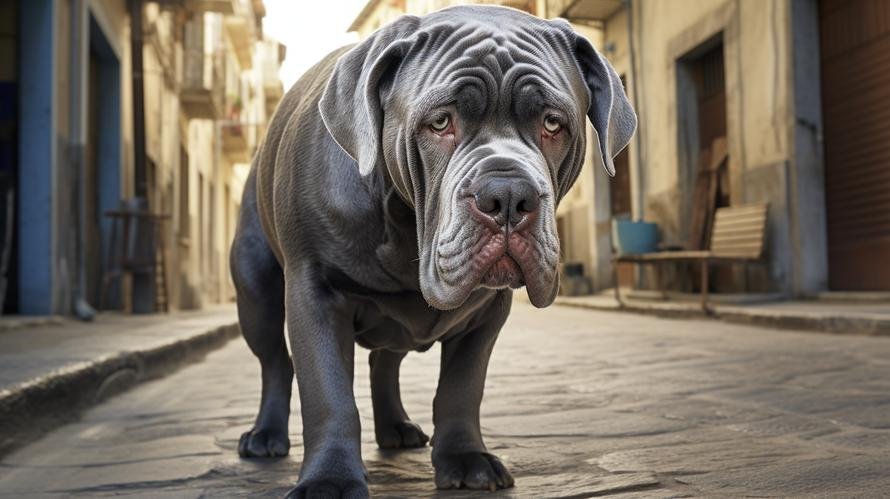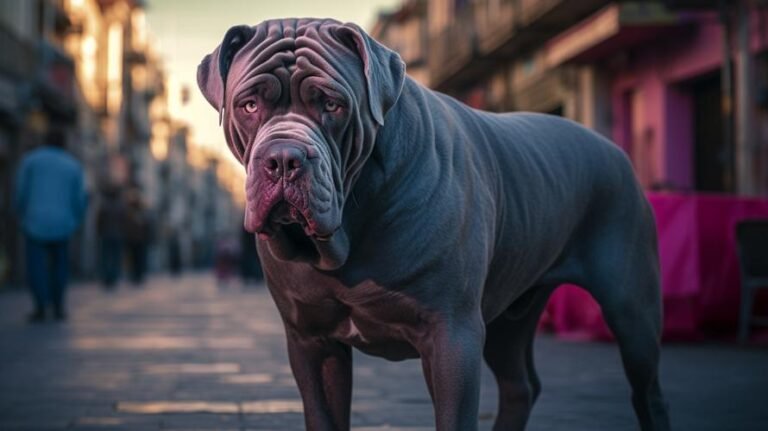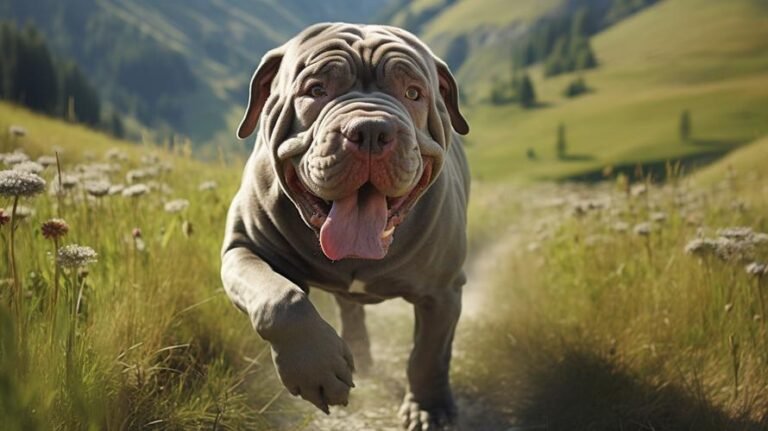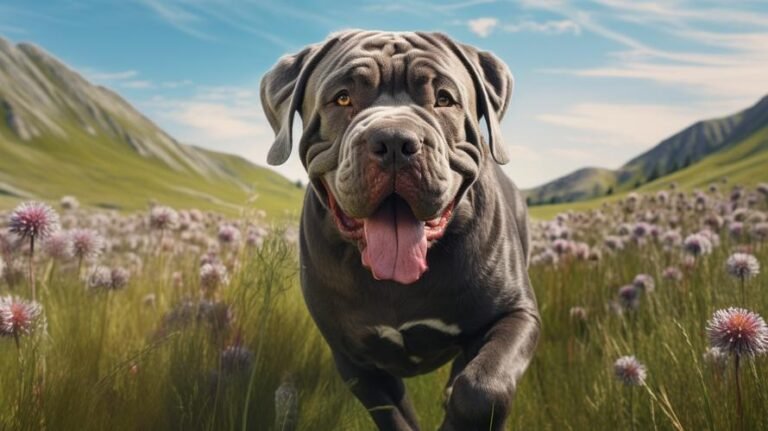Imagine a gentle giant lazing under the Tuscan sun in ancient Italy, a colossal creature whose lineage can be traced back to the days of the Roman Empire. This is the Neapolitan Mastiff, a breed with a heart as big as its considerable size. These mammoth dogs weren’t always the sofa-loving giants you think you know. In their golden past, Neapolitan Mastiffs were bred as war dogs and gladiators, their very presence on the battlefield as fearsome as any sword or spear.
Today, the Neapolitan Mastiff is revered not for its mighty might in combat, but for the tranquil companionship it offers. With their wrinkled brows and soulful eyes, these majestic dogs form an unbreakable bond with their human families. But owning such a grand canine comes with a grand responsibility, particularly when it comes to their nutrition.
These hulking hounds, weighing anywhere from 110 to a whopping 150 pounds or more, have dietary needs as unique as their storied history. With great size comes the need for ample nutrients to maintain their large frame and support their health concerns specific to giant breeds. A Neapolitan Mastiff doesn’t just need dog food; it needs the right kind of dog food tailor-made to suit its colossal constitution.
What makes their dietary needs so distinctive isn’t simply their size; it’s also their relatively low energy level compared to other dogs. One might think a dog as large as the Neapolitan Mastiff would eat like a horse, but in reality, they require fewer calories per pound of body weight than more active breeds. That’s right—this impressive breed can be surprisingly economical at mealtimes! However, don’t let their slow demeanor fool you into offering cheap kibble. This breed is prone to obesity, which can lead to a host of health issues, such as heart conditions, diabetes, and joint problems. Their food needs to pack a nutritional punch without an excessive calorie count.
Protein is the cornerstone of a healthy Neapolitan Mastiff diet. Look for dog food that lists a high-quality source of meat—such as chicken, beef, lamb, or fish—within the first few ingredients. Protein will help to keep their muscles strong and svelte. And it’s not just about muscles; protein is vital for maintaining a healthy coat, which for Neapolitan Mastiffs is short but requires regular attention to prevent skin infections that can hide within their skinfolds.
Don’t forget about fat. While it’s important to watch their waistlines, fats are a necessary part of a balanced diet, providing energy and helping absorb certain vitamins. Fats also contribute to keeping their wrinkly skin supple. Fish oil, flaxseed, and canola oil are excellent sources of fats, rich in omega-3 and omega-6 fatty acids, which promote a glossy coat and healthy skin.
When feeding a breed such as the Neapolitan Mastiff, timing and portion control are your allies. Free feeding—leaving food out all day—is not advisable for this breed. Instead, it’s best to stick to a feeding schedule, usually two meals a day, to avoid overeating. Measured portions prevent obesity and lower the chances of developing bloat—a potentially fatal condition that large breeds are susceptible to.
But it’s not all about the proteins and fats. Carbohydrates are important too, but they should come from high-quality sources. Whole grains, vegetables, and some fruits provide the necessary carbs along with essential vitamins, minerals, and fiber. Be cautious with grains if your Neapolitan Mastiff has allergies, as some can be allergic to common grains like wheat, corn, or soy. There are grain-free options available that use alternative sources like sweet potatoes or peas.
Speaking of allergies, Neapolitan Mastiffs, with their sensitive skin, can be prone to food allergies which manifest as skin irritations and ear infections. If you notice your Mastiff itching more than usual or developing hot spots, it might be time to check their food for common allergens and consult with your veterinarian.
Minerals like calcium and phosphorus are particularly important for large breeds. But here’s a twist—too much of these can be just as bad as too little. The right balance supports bone strength without encouraging abnormal growth, a careful line to walk, given the rapid growth of giant breed puppies. Calcium is especially critical for lactating females to support the mammoth task of nurturing their pups.
As these dogs grow, their food should transition from puppy formulas designed for large breeds to adult and eventually to senior formulas that cater to their changing nutritional needs. With age, the metabolism of Neapolitan Mastiffs will slow further, and their activity levels might decline, demanding adjustments to their diet to ensure they maintain a healthy weight and muscle tone.
You may have also read about supplements as part of a dog’s nutrition regimen. While a well-balanced dog food should cover all bases, some Neapolitan Mastiff owners choose to add extras like glucosamine and chondroitin for joint health or probiotics for digestive wellness. Always consult your veterinarian before adding supplements to be certain they’re necessary and won’t interfere with your dog’s dietary balance.
Another point of interest is the size and shape of the food itself. Neapolitan Mastiffs, with their large jaws and somewhat brachycephalic (flat) face, can have a different time chewing and swallowing food that’s not appropriately sized. Large kibble designed for giant breeds can encourage proper chewing and aid in digestion.
Feeding your Neapolitan Mastiff isn’t just about nutritional balance and meal timing; it’s part of a broader health regimen that includes regular exercise. Despite their laid-back nature, daily walks and play sessions are crucial for maintaining a healthy weight and promoting cardiovascular health. Remember, an overweight Mastiff is at risk for more than just slow movement; obesity reduces their already shorter-than-average lifespan, so keep your gentle giant fit and trim.
Finally, water is the elixir of life, even for Neapolitan Mastiffs. Fresh water should be available at all times to keep your pooch well hydrated.



